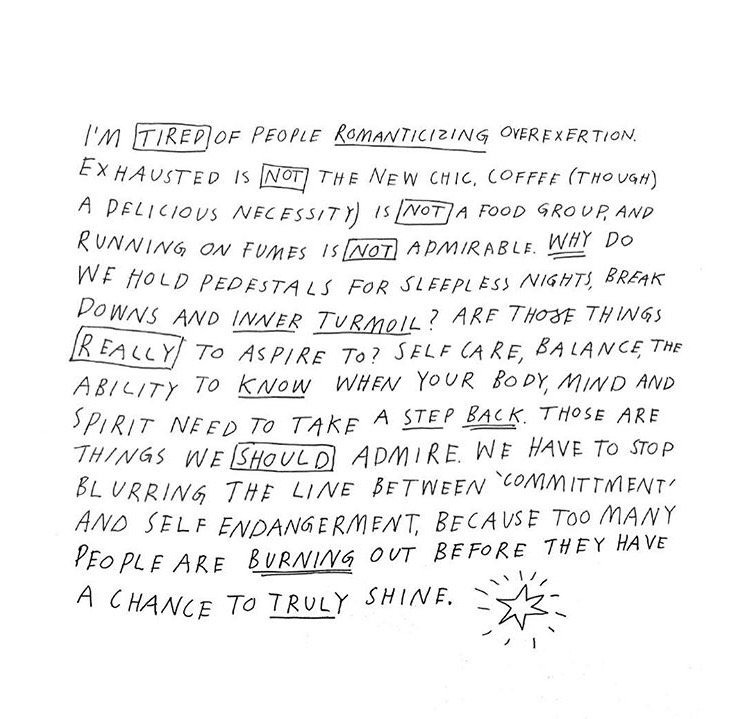I attended the table talk on wellness this past Monday and it was good to hear the perspective of Cornell staff as well as GRF Sara and SA Liz on wellness and student health.
Something that I’ve noticed throughout my time here thus far at Cornell is how prevalent burn out is part of the Cornell culture. That is true of, I’m sure, all elite universities as well. The truth is that Cornell students tend to be high achieving, and because of that, we all tend to do more and more and more. We tend to overcommit, put a ton on our plates, and eventually reach the tipping point: burnout.
I’m not saying all students get to that point, but there are plenty that do. You know what I mean–caffeine overload/5-hr energy overload, sleeping less than 5 hours a day, every day, not taking time to do activities that you love, and eventually getting to a point where you are so mentally and physically exhausted that you’re having a difficult time functioning.
And the thing is… I think to a certain degree, we even romanticize it. We romanticize exhaustion, burning out, putting too much on our plates. And to a certain degree, we believe that doing a lot/overextending ourselves = success. Taking 24 credits in a single semester is not a particular cause for concern for friends but in fact, a “wow, you’re smart!” reaction. Sleeping very little and still being able to get up for a 9am class? It’s considered superhuman and praised and lauded because for most of us, that’s not exactly normal. I think what we don’t see in these cases is the picture of exhaustion. Most of us will never see that one person at their lowest, when they feel like they want to give up, and most of us will never see them reach that tipping point of burning out… because showing that one has reached that tipping point is, in a sense, a sign of ‘weakness.’ So students struggle on, oftentimes alone. What others see is a picture of success, but what they feel on the inside is a sense of dread–trudging along the minutes of every day until the workload might finally one day lighten up.
In the first two weeks of the semester, already, I’ve seen some of my friends look tired and stressed–almost like a dark cloud over their heads from the overextension–so much so that it’s enough to cause some genuine concern on my part. But I know for a fact that I can say everything, offer advice, lend an ear, etc–but at the very end of the day, they will probably still continue to try to handle that workload, drink that caffeine, and stay up to do the work. Even if I want to lessen the stress for them, only they can make the choice to do it. I will admit that I’m 100% guilty of all of this too, and even I cause concern for my friends, but as long as burnout remains a part of college culture, all we can really do is be here for each other.
So here I’m going to share a graphic that is super relevant and important–especially as the semester goes on and each of us start to feel the burnout, just remember that overexertion and exhaustion is romanticized and that we can all shine even brighter if we put ourselves and our physical/mental wellbeing first.


